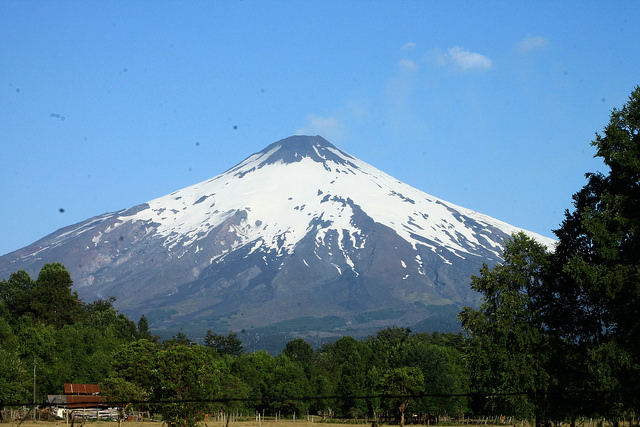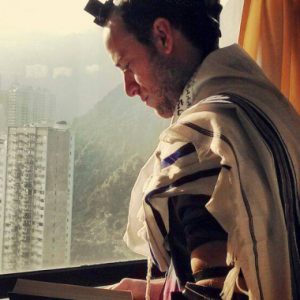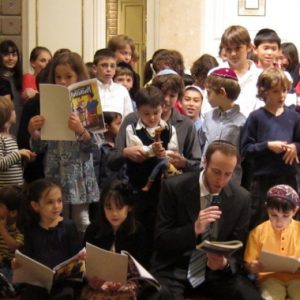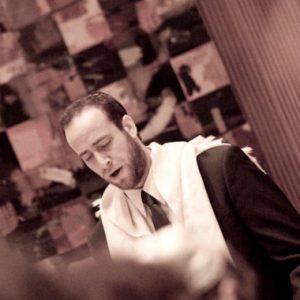Community Blog Educating a Global Jewish Landscape

Hazzan Diego Edelberg earned his Master’s of Jewish Education (MJEd) from Hebrew College in 2018. Here, he talks about his path to Hebrew College, his work in spiritual education, and his Spanish language blog.
Finding an MJEd Program from Hong Kong
“I was born in Buenos Aires and grew up in a Jewish family. My parents and their grandparents were immigrants to Argentina before World War I. I am a trained cantor and spent five years in Hong Kong. After my second year I became interested in Hebrew College. I realized I had a lot of experience in Judaism and in Jewish sources — I was already teaching and working with kids and preparing students for Bar Mitzvah, but I wanted to get a degree to make it more official. Hong Kong didn’t have any place to advance my Jewish studies, so I started Googling around and found the Hebrew College and the online Masters in Jewish Education program. I was already familiar with Art Green and knew all of his books. I couldn’t believe this remarkable thinker was there, at Hebrew College. I knew I wanted to be part of this school.”
Spiritual Education in Action
“Rabbi Michael Shire taught a class called Spiritual Development for Jewish Education about nurturing the spiritual growth of a child or ‘spiritual education’ or ‘soul development’. I loved that class, it was very powerful. The conversation was more mystical, not cognitive, more about the self. In January, I was invited to a Jewish Mindfulness Retreat in Costa Rica lead by Rabbi Marcelo Bronstein. When I was there, we were doing long meditations on Hebrew words, and suddenly I started recalling the Spiritual Development course. That’s how I was introduced to soul development. It came from Hebrew College. Now I have planned to create “an experience” for this whole year. It’s a one-hour experience that blends prayer, meditation, reading a text, self-study, discussion — like a camping experience. I was invited to do this with a group in my home city of Buenos Aires.. This idea for a curriculum grew from my experience at Hebrew College.”
Where in the World is Diego?
“It took me 4 years to do my Master’s in Jewish Education while living in Hong Kong. Deborah Skolnick Einhorn always laughed, because we had a game: “Where’s Diego?” Because I was in Hong Kong, it was easy to travel to Tokyo, China or to Thailand for the weekend. Deborah and I would try to connect — I would be in Thailand or flying to my home country of Buenos Aires. It became a game. But it was one of the amazing things about the Hebrew College online program, I could be traveling all over the world, and I was able to study almost anywhere as long as I had my computer. Most of the files we needed were provided online or teachers would provide them. I bought a Kindle and was able to buy books if I needed them for my studies.”
Blogging in Spanish
“When I was in Hong Kong, one of the fun things I started to do was to blog about Judaism in Spanish. I began translating authors I liked like Rabbis Art Green and Neil Gillman. I thought it was needed in the Spanish speaking world to read these amazing authors that we didn’t have in Spanish. I started translating and adding some of my own ideas. I started the blog in 2011. Today, the blog has 10,000 subscribers and receives 40,000 unique visitors each day. It’s insane. Last year almost 400,000 people read the content I wrote. With the ideas I was learning through the Master’s program at Hebrew College I was able to bring new, fresh ideas to the Web. I found that there is a huge group of Spanish speakers, many whom are not Jewish, who are really interested in and are looking for help and guidance about Judaism.”
Learn more about the Hebrew College MJEd program at hebrewcollege.edu.




